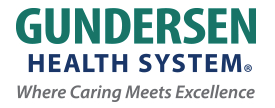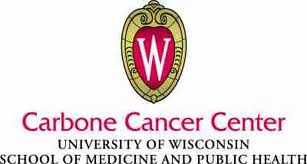Bevacizumab, Lenalidomide, and Dexamethasone in Treating Patients With Relapsed or Refractory Stage II or Stage III Multiple Myeloma
| Status: | Recruiting |
|---|---|
| Conditions: | Cancer, Blood Cancer, Hematology |
| Therapuetic Areas: | Hematology, Oncology |
| Healthy: | No |
| Age Range: | 18 - Any |
| Updated: | 3/30/2013 |
| Start Date: | November 2006 |
Phase II Trial of Bevacizumab Combined With Lenalidomide and Dexamethasone (BEV/REV/DEX) in Relapsed or Refractory Multiple Myeloma
RATIONALE: Monoclonal antibodies, such as bevacizumab, can block cancer growth in different
ways. Some block the ability of cancer cells to grow and spread. Others find cancer cells
and help kill them or carry cancer-killing substances to them. Bevacizumab and lenalidomide
may stop the growth of multiple myeloma by blocking blood flow to the cancer. Dexamethasone
may stimulate the immune system in different ways and stop cancer cells from growing. Giving
bevacizumab together with lenalidomide and dexamethasone may kill more cancer cells.
PURPOSE: This phase II trial is studying how well giving bevacizumab together with
lenalidomide and dexamethasone works in treating patients with relapsed or refractory stage
II or stage III multiple myeloma.
OBJECTIVES:
Primary
- Determine the overall response rate (complete response and partial response) in
patients with relapsed or refractory stage II or III multiple myeloma treated with
bevacizumab, lenalidomide, and dexamethasone.
Secondary
- Determine time to progression in these patients.
- Determine the toxicity and tolerability of this regimen.
- Determine the effect of bevacizumab and lenalidomide on markers of myeloma activity in
myeloma cells and stromal cells, including interleukin-6, macrophage inflammatory
protein-1α, vascular endothelial growth factor, and STAT3.
- Assess local cytokine milieu using tissue microarrays of bone marrow biopsy specimens.
OUTLINE: This is a multicenter, open-label study.
Patients receive bevacizumab IV over 30-90 minutes on days 1 and 15, oral lenalidomide on
days 1-21, and oral dexamethasone on days 1, 8, 15, and 22. Courses repeat every 4 weeks in
the absence of disease progression or unacceptable toxicity.
Blood samples are collected at baseline and before courses 2 and 4. Blood samples are
examined for vascular endothelial growth factor (VEGF) and VEGF receptor (VEGFR)
polymorphisms by pyrosequencing and VEGF, VEGFR1, VEGFR2, interleukin-6, and macrophage
inflammatory protein 1 by immunoenzyme techniques. Relationships between plasma cell myeloma
and stroma and the effect of study treatment on these relationships are examined in tissue
sections of bone marrow before and after treatment utilizing microvessel density
measurements, VEGF staining, and STAT3 staining (by immunohistochemistry and fluorescent in
situ hybridization [FISH]).
After completion of study treatment, patients are followed periodically for at least 5
years.
PROJECTED ACCRUAL: A total of 33 patients will be accrued for this study
DISEASE CHARACTERISTICS:
- Histologically or cytologically confirmed symptomatic multiple myeloma
- Stage II or III disease
- Relapsed or refractory disease after ≥ 2 courses of prior chemotherapy
- Measurable levels of monoclonal protein (M protein) > 1.0 g/dL by serum protein
electrophoresis OR > 200 mg of monoclonal light chain by 24-hour urine protein
electrophoresis
- Measurable bone disease, defined as ≥ 1 unidimensionally measurable lesion (longest
diameter to be recorded) ≥ 20 mm with conventional techniques OR ≥ 10 mm with spiral
CT scan (for patients with lytic bone disease)
- No known brain metastases
PATIENT CHARACTERISTICS:
- ECOG performance status (PS) 0-2 OR Karnofsky PS 70-100%
- Patients with PS of 3 are eligible if it is due to pain that is likely to
improve with treatment
- Life expectancy > 6 months
- No known HIV positivity
- No abdominal fistula, gastrointestinal perforation, or intra-abdominal abscess within
the past 6 months
- No active infections requiring oral or intravenous antibiotics within the past week
- No proteinuria (i.e., albuminuria) > 1,000 mg/24 hours unless related to the
diagnosis of multiple myeloma
- Patients with light chain (i.e., "Bence-Jones") proteinuria are still eligible
if the non-light chain component of protein is < 1,000 mg/24 hours
- No serious nonhealing wound or ulcer
- No blood pressure > 150/90 mm Hg (even with medication)
- No significant traumatic injury within the past 28 days
- No clinically significant peripheral vascular disease
- No evidence of bleeding diathesis or coagulopathy
- No unstable angina or myocardial infarction within the past 6 months
- No stroke within the past 6 months
- No New York Heart Association class III or IV heart failure
- No secondary malignancy within the past 2 years except squamous cell or basal cell
carcinoma of the skin or carcinoma in situ of the cervix
- Hemoglobin > 9 g/dL (may be supported by transfusion or growth factors)
- WBC ≥ 2,000/mm³
- Absolute neutrophil count ≥ 1,000/mm³
- Platelet count ≥ 75,000/mm³
- Bilirubin ≤ 2.5 mg/dL
- AST and ALT ≤ 5 times upper limit of normal
- Creatinine < 2.5 mg/dL
- Creatinine clearance > 30 cc/min
- Not pregnant or nursing
- Negative pregnancy test
- Fertile patients must use 2 methods of effective contraception 4 weeks before,
during, and 4 weeks after completion of study treatment
- No history of allergic reactions attributed to compounds of similar chemical or
biological composition to lenalidomide and/or bevacizumab or other agents used in the
study
PRIOR CONCURRENT THERAPY:
- See Disease Characteristics
- At least 4 weeks since prior chemotherapy or radiotherapy and recovered
- More than 7 days since prior minor surgical procedures, fine-needle aspirations, or
core biopsies
- More than 24 hours since prior bone marrow biopsy or central veinous access
placement
- More than 28 days since prior major surgical procedure or open biopsy
- At least 4 weeks since prior and no concurrent participation in another experimental
drug study
- Prior autologous peripheral blood stem cell transplantation allowed
- No prior lenalidomide
- Concurrent full-dose anticoagulants allowed provided all of the following criteria
are met:
- No active bleeding or pathological condition that carries a high risk of
bleeding (e.g., tumor involving major vessels or known varices)
- No thrombocytopenia requiring transfusion
- Platelet count > 75,000/mm³
- INR 2-3 and stable
- No concurrent major surgery
- No concurrent sargramostim (GM-CSF)
- No other concurrent investigational agents
- No other concurrent anticancer agents or therapies
We found this trial at
7
sites
Click here to add this to my saved trials
1920 Libal Street
Green Bay, Wisconsin 54307
Green Bay, Wisconsin 54307
(920) 433-8889

St. Vincent Hospital Regional Cancer Center Our group of 19 oncologists, including the region's only...
Click here to add this to my saved trials
1900 South Avenue
La Crosse, Wisconsin 54601
La Crosse, Wisconsin 54601
(608) 782-7300

Gundersen Lutheran Center for Cancer and Blood Gundersen Health System is where caring meets excellence...
Click here to add this to my saved trials
600 Highland Ave.
Madison, Wisconsin 53792
Madison, Wisconsin 53792
(608) 262-5223

University of Wisconsin Paul P. Carbone Comprehensive Cancer Center UW Carbone Cancer Center holds the...
Click here to add this to my saved trials
Click here to add this to my saved trials
Click here to add this to my saved trials
333 Pine Ridge Blvd
Wausau, Wisconsin 54401
Wausau, Wisconsin 54401
715.847.2121

University of Wisconcin Cancer Center at Aspirus Wausau Hospital The Aspirus Regional Cancer Center is...
Click here to add this to my saved trials